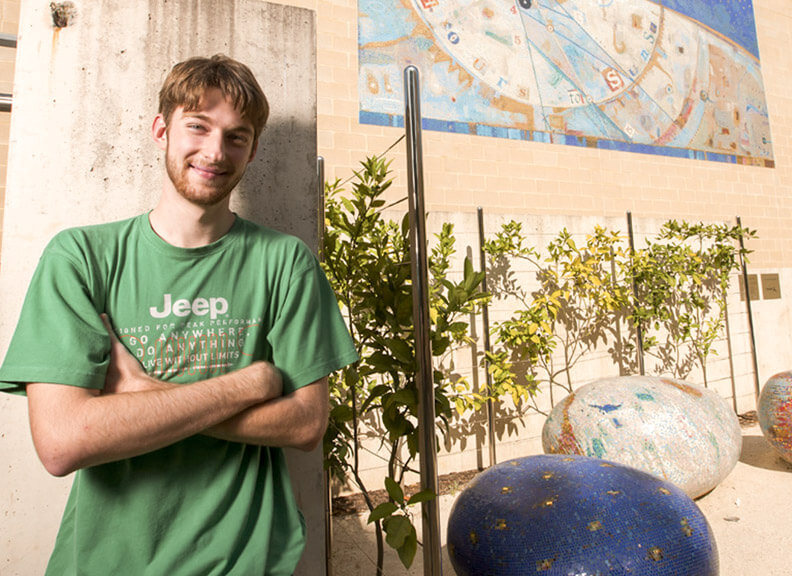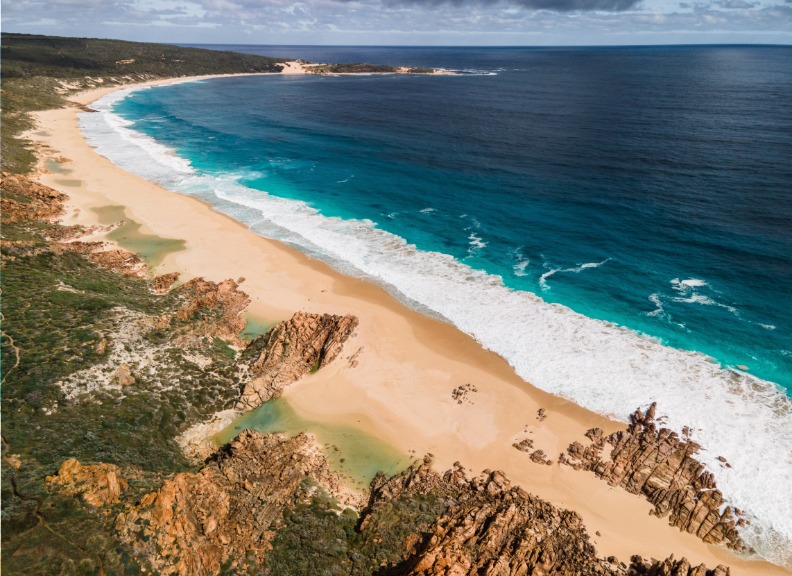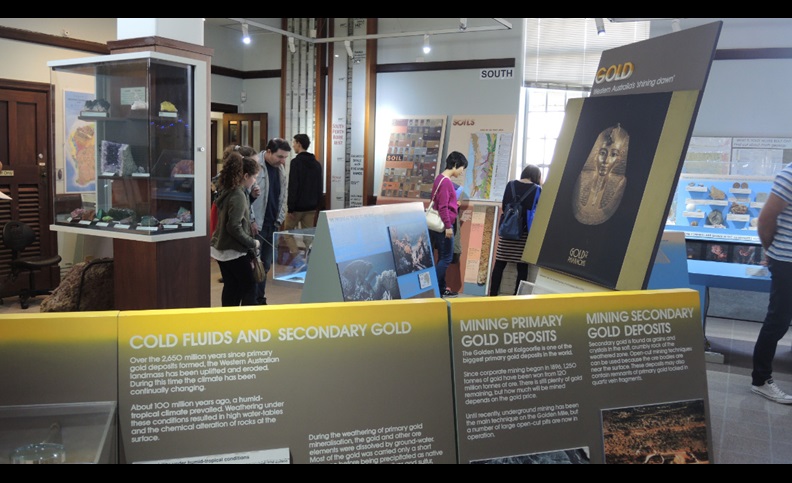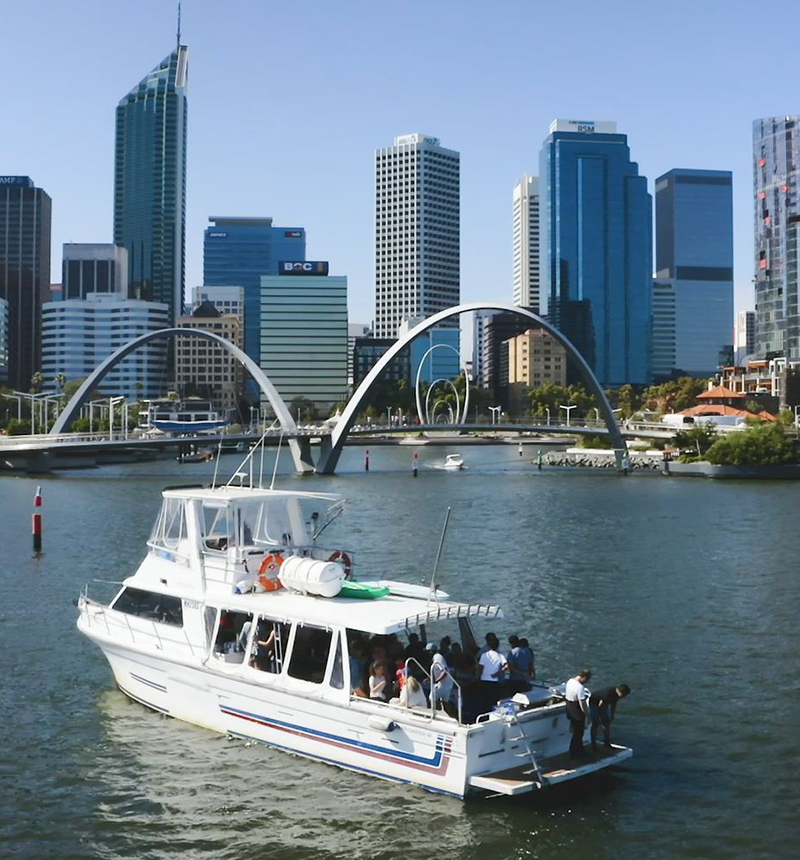Undergraduate
Bachelor of Earth Sciences
Gain a holistic understanding of earth and its oceans to help secure a more sustainable future
Majors available

Bachelor of Earth Sciences and Master of Geoscience
Be at the forefront of creating a more sustainable future for our planet by gaining a holistic understanding of Earth and its oceans.

Bachelor of Earth Sciences and Master of Oceanography
Challenge yourself with a Bachelor of Earth Science and Australia’s only Master of Oceanography while gaining a unique experience at UWA.

Geochemistry (Extended Major)
Geochemistry is the application of chemistry to understand Earth’s systems and processes.

Integrated Earth and Marine Sciences (Extended Major)
Be at the forefront of creating a more sustainable future for our planet by gaining a holistic understanding of Earth and its oceans.
The learning experience
Study area - Natural and Physical Sciences
Find out more about where Natural and Physical Sciences can take you.
Love the outdoors? Make nature your office with these careers
If you’re born to be outdoors, why not turn your passion into a career?
Why choose UWA
Explore our campuses and facilities, get to know the history of our State’s oldest university and discover why a UWA degree can set you up for the careers of the future, not just the jobs of tomorrow.
Why choose UWA
Student Life
Discover what life’s really like at university, hear from current students in a variety of courses and learn about the student amenities and support services on offer at UWA.
Events
One of the best ways to find out about studying at UWA is to take part in the many events we offer future students.
Fees and scholarships
Domestic Student Fees
For Commonwealth-supported places, student contribution amounts are charged by unit, based on area of study. For a fee estimate, go to the Fee Calculator and select “I want to price my units”. Fees are subject to annual indexation. Refer to the Handbook to identify the units required. More information on how fees are calculated.
Scholarships
Scholarships are available to students from a diverse range of backgrounds, including academic achievement, financial need, educational disadvantage, leadership and community service, artistic or sporting achievements, and being from a rural or remote area.
International Student Fees
Onshore international students are charged an annual course fee, charged per credit point at a rate dependent on the course in which the student is enrolled. Annual course fees are calculated based on an annual study load. Check the handbook to confirm the annual study load for your course.
Find out more about international student tuition fees and visit the fee calculator for the relevant course fees.
Fees are subject to annual indexation.
Scholarships
Scholarships are available to students from a diverse range of backgrounds, including academic achievement, financial need, educational disadvantage, leadership and community service, artistic or sporting achievements, and being from a rural or remote area.
Careers and further study
Career opportunities
Opportunities exist across industry and government, including resources industries, consultancy and resource management.
Graduates may work as:
- Geologist
- Geochemist
- Geophysicist
- Natural Resource Manager
Entry requirements
Admission Requirements
To be considered for this course you need to:
- Achieve the University’s minimum entry score
- Demonstrate English language competence
- Satisfy any prerequisites for your preferred majors (refer to individual major descriptions for prerequisite details)
You can view the prerequisites and recommended subjects for your chosen course here.
View our admission requirements for specific information, depending on your education history.
Assured Pathway information
If you have a professional career in mind, take advantage of one of our Assured Pathways. An Assured Pathway gives you an assured place in one of our postgraduate professional courses (such as Law, Engineering or Medicine) from the start of your studies with us. The pathways combine a range of undergraduate and postgraduate courses, providing you with a clearer direction to your career of choice.Admission entry to UWA
We offer a number of other pathways for you to gain entry into our undergraduate degrees if you do not meet the standard admission requirements. Learn more about our admission entry pathways.
About the Bachelor of Earth Sciences
The Bachelor of Earth Sciences is ideal for students who are curious about the complex system that comprises the solid Earth, its oceans and atmosphere, and the place of Earth in the solar system and beyond. Earth Scientists have a key role to play in understanding environmental challenges and sustainability of resources in a changing world.
Quick details
- 4
- Available
- 80
- Semester 1, Semester 2
- 3 years full time
- BP029
- Specialised Bachelor's Degree
- UWA (Crawley campus)
- 107428E
Why study Earth Sciences at UWA?
- Interact and learn from passionate educators and researchers
- Opportunity to connect with world-class research teams and industry leaders
- Have access to leading facilities for research and field-based activities
- Gain industry-government experience through Work Integrated Learning (WIL) that emphasises the relevance of laboratory learning
- Courses are structured to offer you a broad range of options that combine subjects aligning with your career goals and interests
- Use of real-world datasets, problem-solving techniques, skills in analysing and synthesising data, communication and teamwork will strengthen your employability
Work Integrated Learning
Work Integrated Learning (WIL) helps bridge the gap between theory and practice by providing opportunities for students to gain hands-on, practical industry relevant experience and for employers to help shape the graduates of tomorrow.
Edward de Courcy Clarke Earth Science Museum

The Edward de Courcy Clarke Earth Science Museum is home to over 180,000 specimens.


